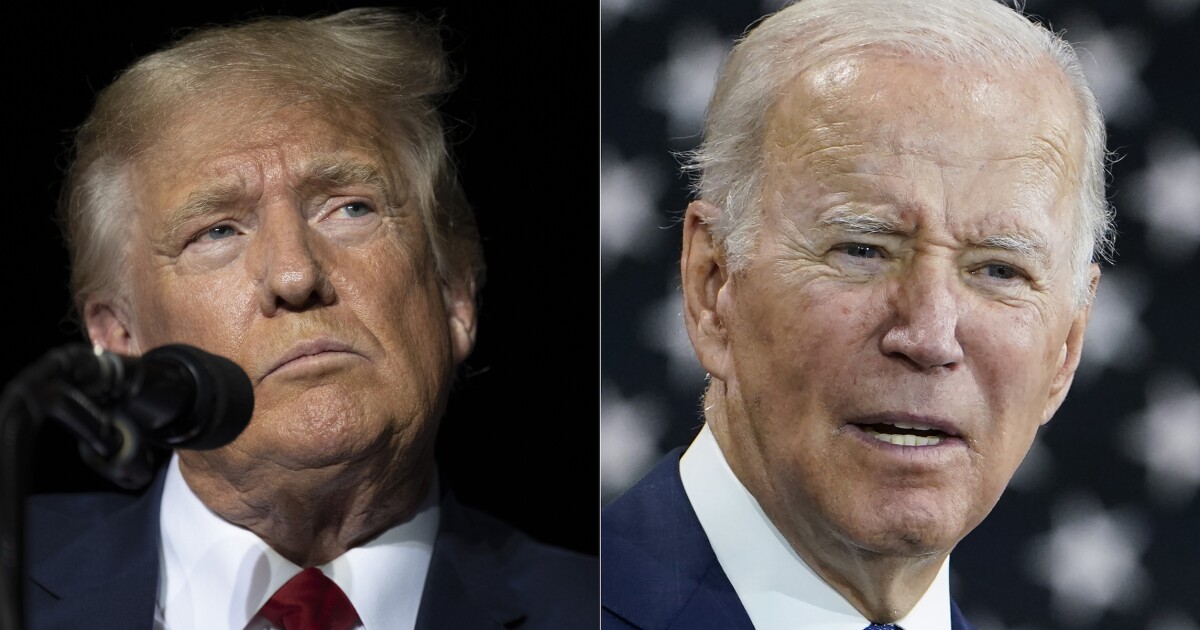

Between President Joe Biden, former President Donald Trump, and former Secretary of State Hillary Clinton, it has been more than a decade since the country was offered a major presidential nominee who didn’t wind up embroiled in a classified documents scandal.
But at least part of the disturbing trend may lie in an age-old habit — the chronic overclassification of government materials.
LEGAL EXPERTS SAY WHITE HOUSE CAN — AND SHOULD — SAY MORE ABOUT DOCUMENTS SCANDAL
“The executive branch’s overclassification of information is a serious problem,” said Walter Shaub, an ethics fellow with the Project on Government Oversight. “Our government is supposed to be accountable to the people, but officials can escape accountability by unnecessarily classifying records and putting them beyond the public’s reach.”
Overclassification over years can have the ironic effect of lessening the care with which such documents are handled, Shaub argues.
“The government has been notoriously overclassifying records for decades, and that can breed a lax attitude about classified records,” said Shaub, former director of the U.S. Office of Government Ethics. “I think we’re witnessing the consequences of that lax attitude.”
The seemingly quotidian topic of document storage has dominated headlines ever since the Department of Justice raided Trump’s Mar-a-Lago home last August, spawning controversy over national security implications and arguably launching Trump himself back into the spotlight.
Biden weighed in at the time, saying, “How that could possibly happen? How one — anyone could be that irresponsible?”
But even as he said that, misplaced documents were scattered inside Biden’s Washington think tank and in multiple rooms of his Delaware home, facts the public only learned about this month.
The current White House is now embroiled in a classification controversy in which it is providing few answers. Though Trump has claimed all of the documents in his possession were declassified, the public may never learn exactly what was in the possession of either president.
Before Trump or Biden, 2016 Democratic presidential nominee Clinton found herself embroiled in scandal over her use of a homebrew email server, which itself involved the mishandling of classified material.
One underlying factor is the sheer volume of material the government classifies in any given year.
A 2016 estimate from the National Archives oversight office found that roughly 102 million pages of U.S. government documents were reviewed for declassification that year, with about 44 million pages declassified.
The Biden administration itself seems to be aware of the problem, ordering in June a review of the classification system.
But interviewees for this story said the executive branch has little incentive to fix the system since the ability to classify documents gives the White House increased power, something administrations from both parties have shown little enthusiasm to relinquish.
It’s also a long-standing problem. In 1989, Erwin Griswold, who had argued against publication of the Pentagon Papers while serving as solicitor general, wrote that there was a “massive overclassification” problem.
But the problem goes back even farther than that, says Cato Institute senior fellow Pat Eddington.
“Overclassification of U.S. government records has been a problem for over a century and often involves agency or department attempts to keep embarrassing information from public or congressional scrutiny,” he said. “Not much has changed since the late Sen. Pat Moynihan [D-NY] chaired a commission on government secrecy over 20 years ago.”
Eddington argues that it should be made a federal felony to misuse the classification system to conceal waste, fraud, abuse, mismanagement, or criminal conduct. Until then, the mishandling of classified material is likely to remain an ongoing problem.
CLICK HERE TO READ MORE FROM THE WASHINGTON EXAMINER
“You need a congressionally led overhaul of the entire classification system,” said Eddington. “As the last 100 or so years have shown, the executive branch cannot be trusted to get the problem under control.”







